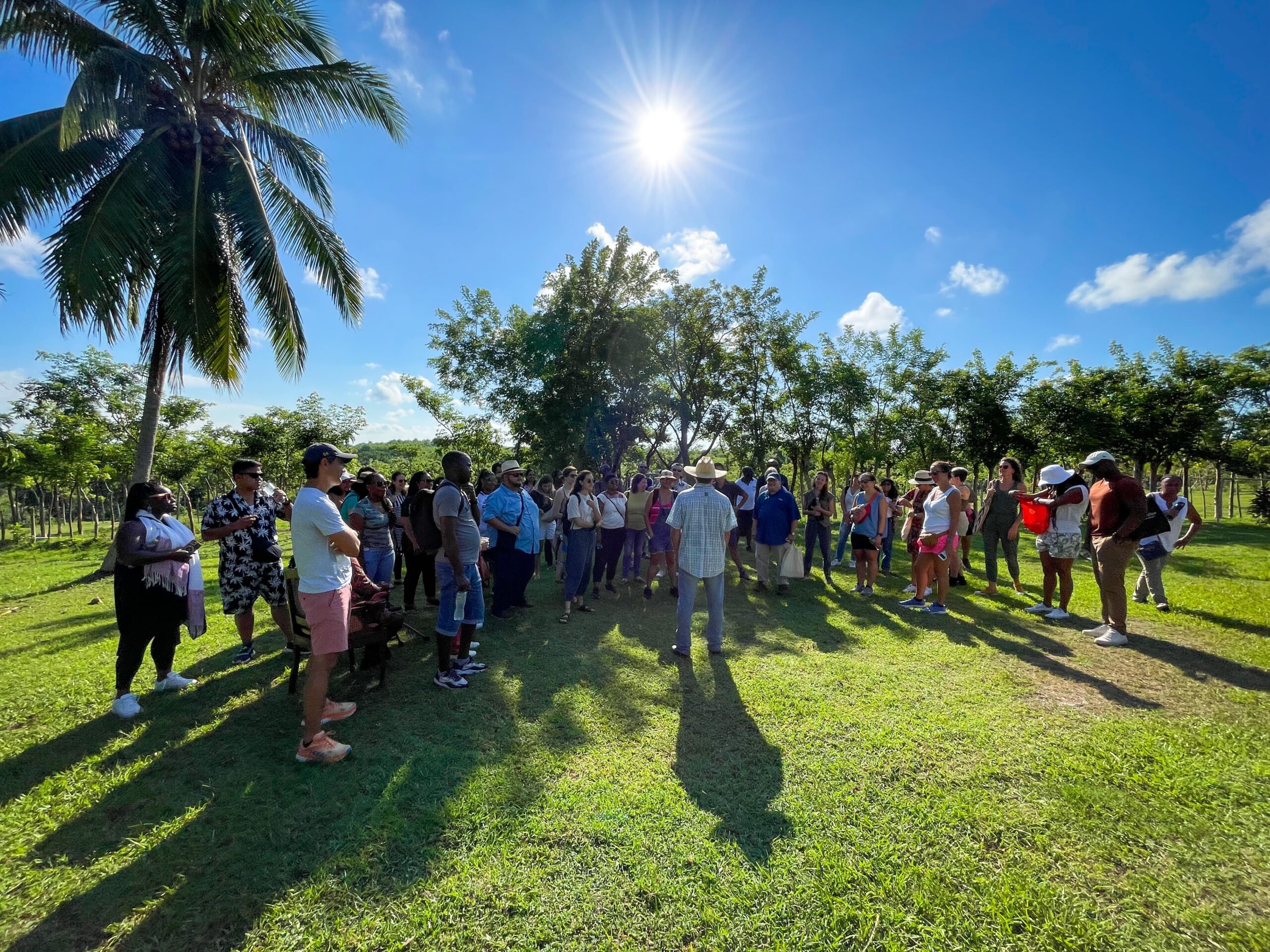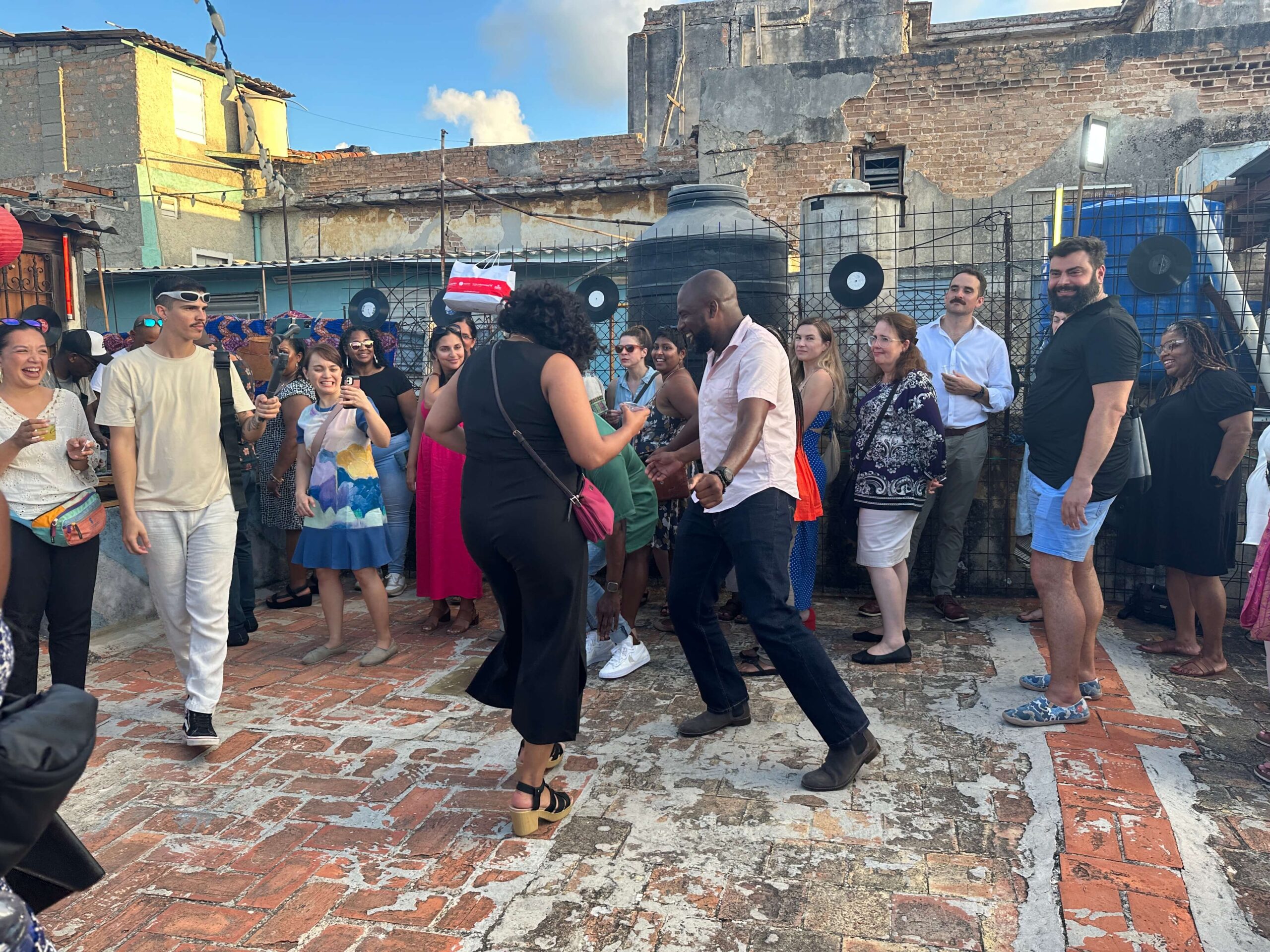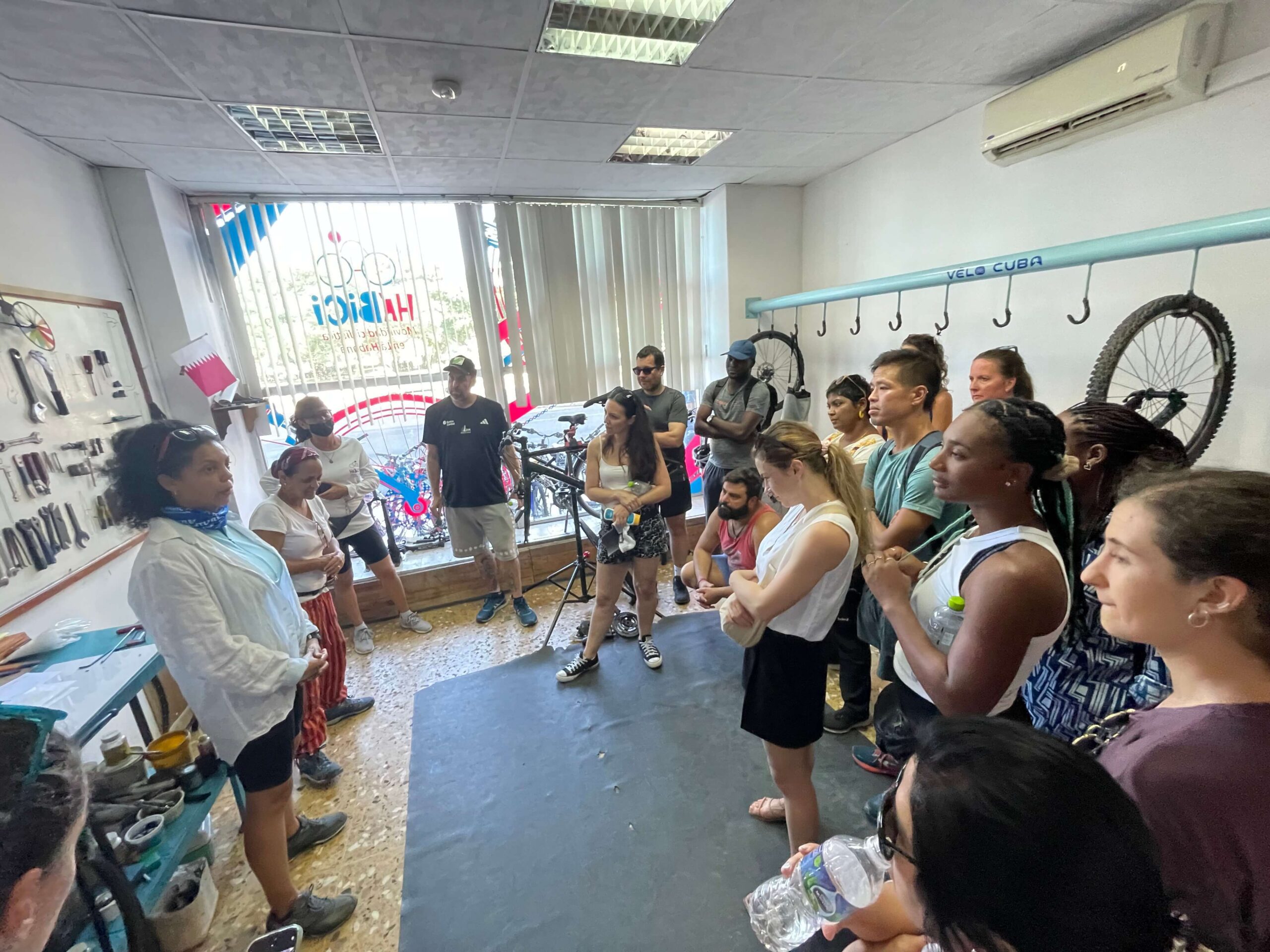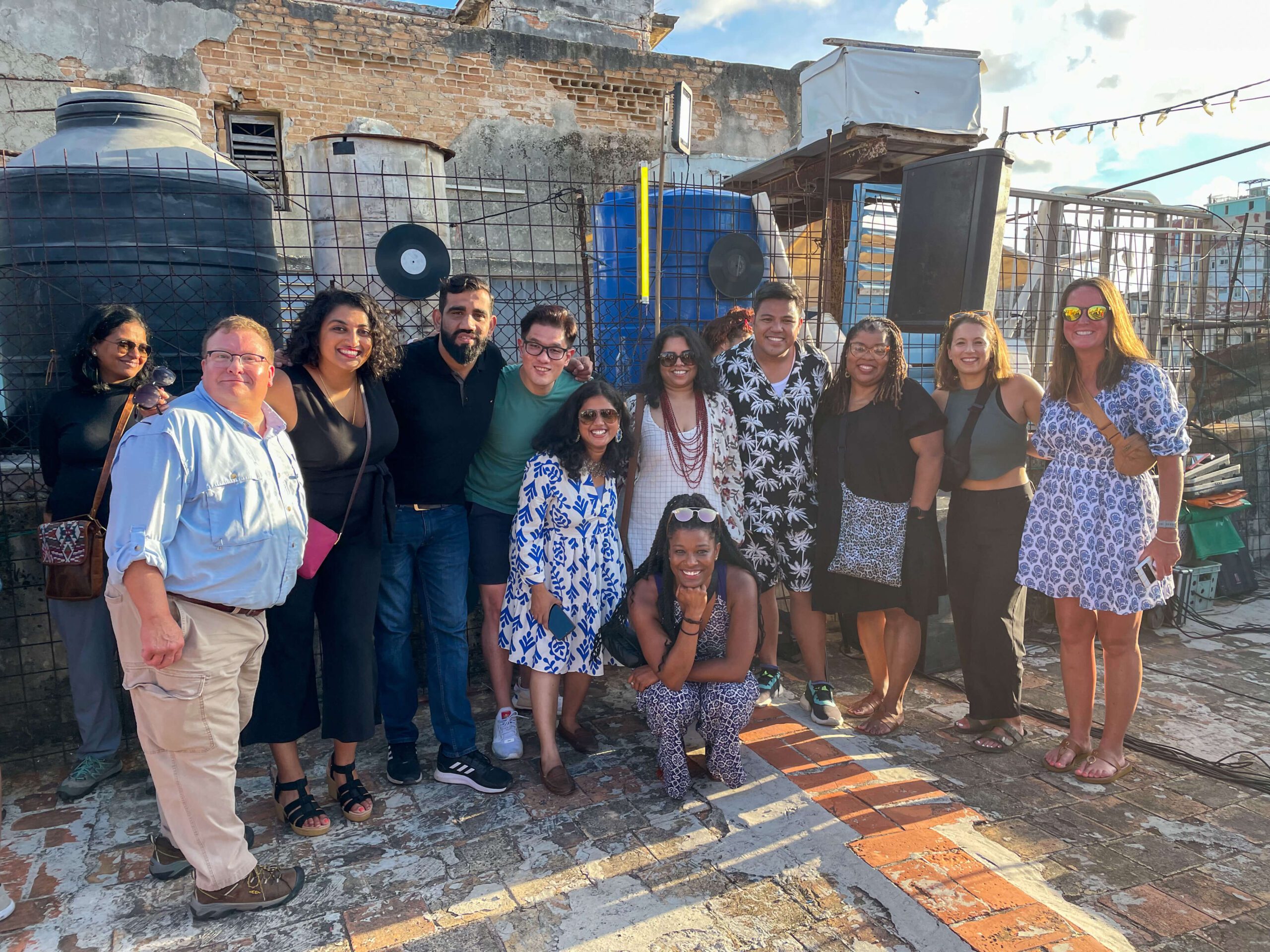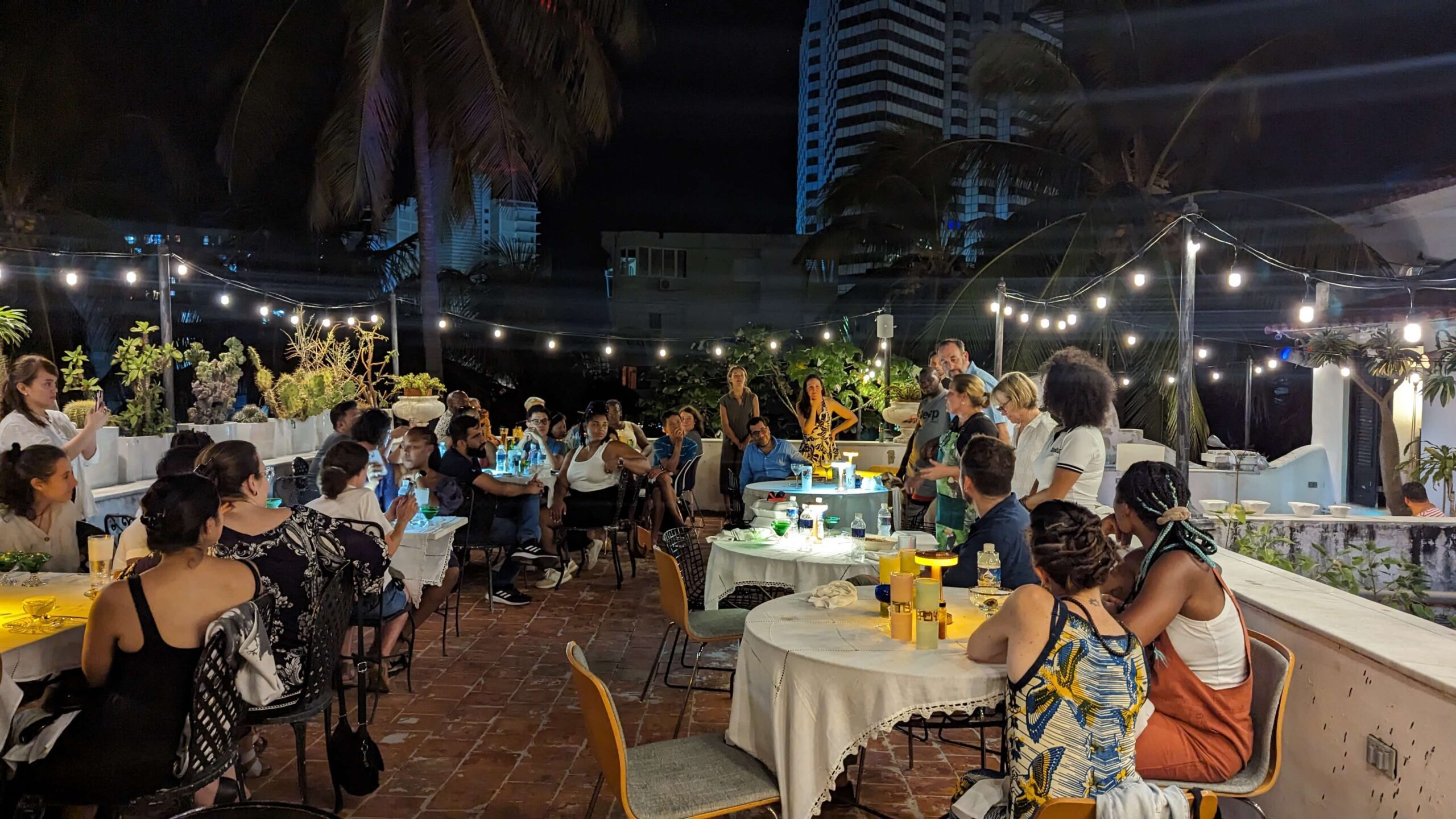From September 12 – 16, Senior Atlantic Fellows for Health Equity traveled from their homes and workplaces around the globe to come together in Havana, Cuba, to learn about the role of the Cuban social and economic systems in national health and well-being. Our partnership with Care Lab provided a unique opportunity to engage with Cuban people. And as with all Senior Fellow Convenings, this was a special setting that provided space and time for our fellows to reconnect with their cohorts and meet fellows from other cohorts.
Connecting at convenings is an important way to strengthen the Atlantic Fellows for Health Equity community through relationship-building that leads to idea sharing and finding avenues for possible collaboration. Health equity work is challenging and Senior Fellows describe feeling inspired by learning in new contexts and spending time with each other. After convenings, Fellows return to their communities with renewed energy and commitment.
One of the key takeaways is my fellowship with my fellow fellows — old and new — will always reignite that spark in my heart to continue to champion health equity. The passion shown by everyone in the respective spheres is enough to recharge my own desire to build something better so that no one is left behind.
DEBBORRAH LIAO ’18
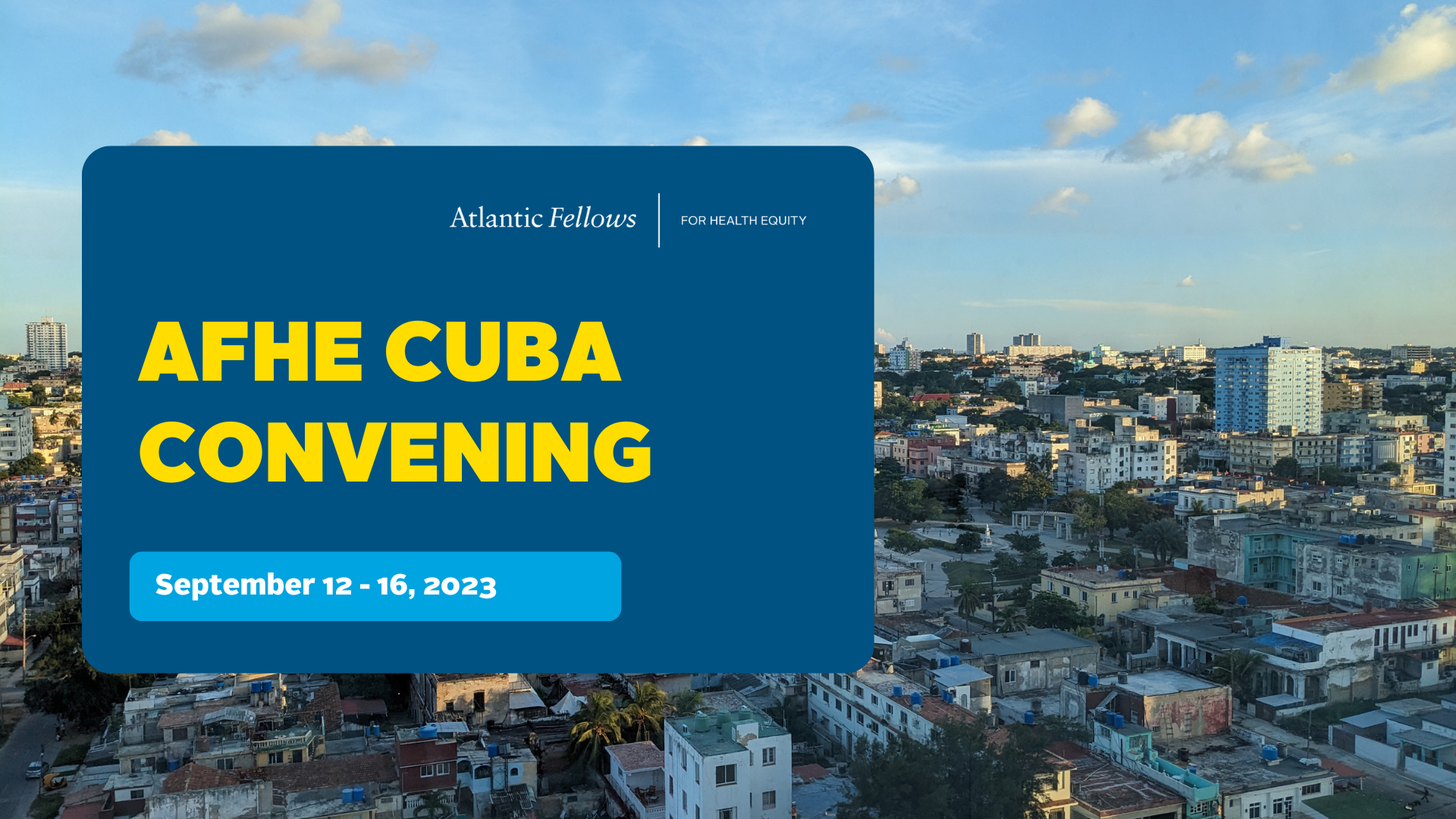
After a night of introductions and delicious food at a Cuban paladar — a small, family-run restaurant — the AFHE Cuba Convening began in earnest first with a heartfelt welcome from Lesford Duncan ’18 followed by a discussion of community engagement and agreements by Gabrielle Jackson ’20.
I will get and give hope, and be inspired from the incredible community of people doing this work. When we connect with each other, it really gives us the motivation to do this work.
QUSAI HAMMOURI ’21
We learned of Cuba’s history from colonialism and imperialism to the present day with speakers that explored the enduring legacy of each period in the urban landscape and touched on some of the successes and challenges of the Cuban healthcare system.
Noticing my own observations and questioning what I find beautiful in the visual landscape of Cuba: The aesthetics of the built environment, many different eras represented in the architecture; the aesthetics of ruin, which is so often glorified by artists and photographers; the nostalgia of the antique cars; and the fact that there are so few cars on the road. All of these things, which I enjoyed visually and aesthetically, relate to the lack of options for the Cuban people. People don’t choose not to drive, or not to drive a modern car, they don’t choose to let their apartment’s exterior crumble into the street below, and they certainly don’t choose to live in a built environment that’s decaying out from under their feet. I felt conscious that what I saw as beautiful around me could be in extreme contradiction with people’s quality of life.
ELIZA SQUIBB ’19
The majority of the convening was spent in the community with the Cuban people. During community visits, the fellows glimpsed some of the many challenges faced by Cubans, including shortages of goods and the impact of the US embargo, prompting reflection and discussion.
From visits to local entrepreneurs running a bicycle co-op, printmaking service and a classic car business to spending time with local leaders focused on racial justice, feminism, economic empowerment and education, we were graciously invited into people’s homes and businesses to learn more about the realities of life in Cuba.
From lectures and discussion with local experts, we learned about Cuba’s history, revolution, healthcare system, sustainable agriculture, and overall economy. More importantly, we spent most of our time in community learning about Cuba from the people, while breaking bread, dancing, farming, and sitting in the homes of elders who’ve dedicated their lives to racial equity, justice and bettering their country. Every convening with the Atlantic Fellows has filled my heart with inspiration and my mind with new ideas as we strive towards building more equitable and just communities around the world.
LESFORD DUNCAN ’18
We spent a day at Finca Marta, a farm on the outskirts of Havana run by agroecologist Dr. Fernando Monzote where we learned about Cuba’s food and farming system, diving into questions of food sovereignty, sustainability and security. On the final day of the convening, after community site visits, we shared personal reflections and closed with dance, led by Nancy Rumaldo ’21.
This experience in Havana deepened my commitment to addressing the social determinants of health that promote equity. It reinforced the idea that health equity extends beyond the realm of medical care and encompasses access to the fundamental elements that contribute to a dignified life. I am truly grateful as I reflect on this experience in Havana. I am reminded of the power of fellowship and the potential for transformative change when brilliant minds and compassionate hearts come together. In a city untouched by time, we found a timeless sense of purpose and inspiration that will continue to drive us in our mission to combat inequity and create a more just and equitable world for all.
PETER GAN KIM SOON ’20
With the many emotions that emerged from our trip, this experience won’t soon leave the minds of the Senior Fellows and staff that took part in the Cuba Convening. We have much more to share from this trip, so stay tuned. We will follow with a deeper dive into some of the themes that emerged from our trip, sharing perspectives and insights from the fellows who attended.
